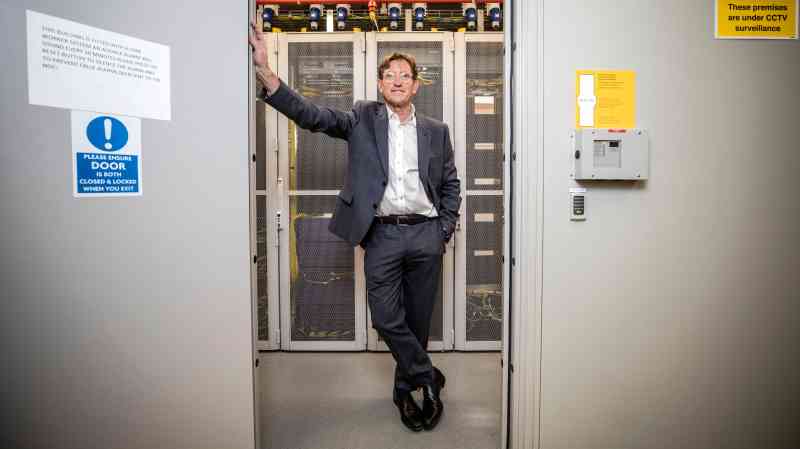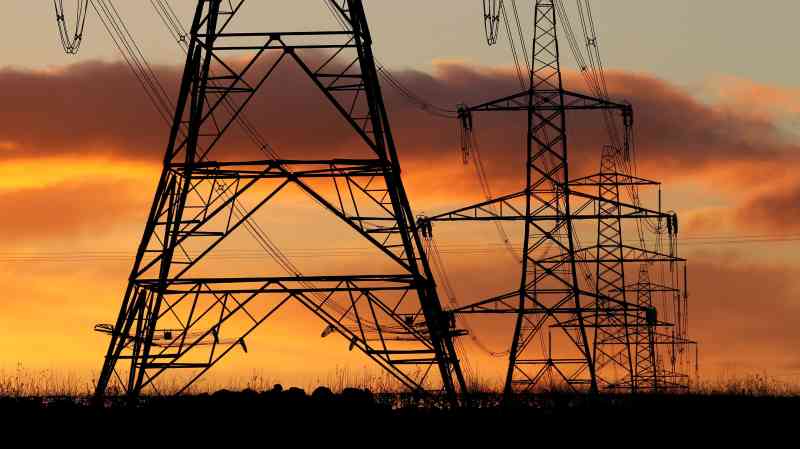Where should I save £370k from my house sale before I buy again?
Q. My wife and I are due to complete our house sale next month but are yet to find another property to buy, so are moving in with my brother to break the chain. It means that we will have an awful lot of money — about £370,000 — in cash while we search for and complete our purchase. We are reluctant for this amount of money to sit idle in a current account for what is likely to be at least three months and are keen to get some return on it. We will need the money for our next home so would like something very low risk that does not involve investing in the stock market. Both my wife and I are higher-rate taxpayers so have £500 each to play with before we start paying tax on any interest, but don’t have any issue with paying tax once over this threshold, as long as the money is working as hard as it can for us. Any suggestions on where we should put the funds while we wait to buy again would be much appreciated. Thomas, Windermere

Anna Bowes replies
It really makes sense to want to get a return on your money while you are looking for your new home and as you are going to need access to it in the short term, cash savings is a sensible place to put it.
The good news is that even though the Bank of England base rate was cut to 5 per cent this month, there are still savings rates of 5 per cent or more available.
But it can be a tough decision as to what sort of account to choose for such a big sum of money.
The top paying three-month fixed-term bond is with a provider called Mizrahi Tefahot Bank paying 5.3 per cent — which is available exclusively via the Flagstone platform. It is covered by the Financial Services Compensation Scheme (FSCS), which protects up to £85,000 per person, per banking licence, if the bank fails.
However, as with most fixed-rate bonds, there is no access before maturity, so if you need the cash before the term ends, you’d need to find an alternative source, which could leave you in a very difficult position. On a deposit of £370,000, you could earn approximately £4,900 over the three months, which would take you both well over your tax-free personal savings allowance.
If there is a possibility that you may need earlier access to the funds, the top easy access account is the Principality Building Society online triple-access account paying 5 per cent AER. As the name suggests, only three withdrawals can be made a year, but that would appear to suit your circumstances, as you will need the money only to purchase your new home.
Be sure to read the terms and conditions carefully because with this particular account, if you make three withdrawals without closing the account on the final one, you will not be able to access your money until the next calendar year.
Not all restricted access accounts work like this. Most will drop the rate for the remainder of the year once you have exceeded the number of penalty-free withdrawals, but won’t deny access to your funds.
You could also consider a notice account, which requires you to give a certain number of days’ notice before the funds can be be released. The top 90-day notice account is being offered by Investec Bank and is paying 5.25 per cent — but to be on the safe side, you’d need to consider giving the required notice as soon as, or shortly after, you open the account if you want to know you can get hold of the money three months later.
Both easy-access and notice accounts have variable rates so the interest could be cut at any time. But if you’re not sure about what access you’ll need, these could be the most cost-effective options.
Another risk of having such a large lump sum of cash to deposit would be how much of it is protected should the worst happen. As well as the £85,000 protection, the FSCS also protects temporary high balances of up to £1 million for six months from the date you are credited with the money. This applies only to funds received from certain life events, including the sale of your main residence (and also redundancy, divorce and personal injury).
So that’s one less thing to worry about. Now you just need to find the savings account that pays you the highest interest rate with access that suits your needs.
Anna Bowes helped to set up the consumer website Savings Champion in 2011 and has worked in financial services for more than 30 years.




Post Comment